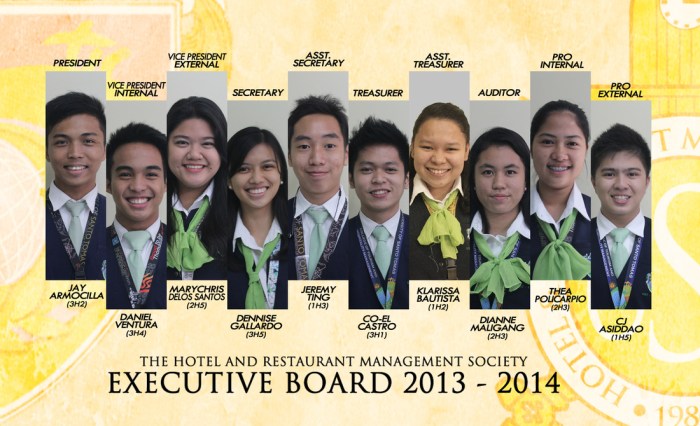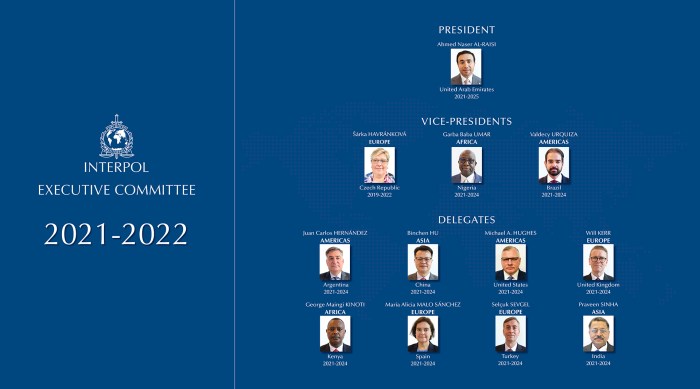The executive committee of a hotel is a vital body responsible for the strategic direction and oversight of the hotel’s operations. Composed of senior managers and executives, this committee plays a crucial role in decision-making, planning, and ensuring the hotel’s success.
This comprehensive guide will delve into the roles and responsibilities of the executive committee, its composition and structure, meeting procedures, strategic planning, oversight and control functions, communication channels, and best practices. By understanding these aspects, hoteliers can optimize the effectiveness of their executive committees and drive exceptional hotel performance.
Roles and Responsibilities

The executive committee of a hotel is responsible for overseeing the overall management and operations of the hotel. The committee typically consists of the general manager, the heads of the major departments, and other senior managers.
The primary functions of the executive committee include:
- Developing and implementing the hotel’s strategic plan
- Setting financial goals and budgets
- Approving major capital expenditures
- Reviewing and approving the hotel’s operating performance
- Making decisions on major policy changes
- Representing the hotel to the board of directors and other stakeholders
The executive committee is accountable to the board of directors for the hotel’s performance.
Composition and Structure
The executive committee of a hotel typically consists of the following members:
- General manager
- Director of sales and marketing
- Director of operations
- Director of finance
- Director of human resources
- Director of food and beverage
- Director of engineering
The members of the executive committee are typically appointed by the general manager, with the approval of the board of directors.
The term length for members of the executive committee is typically one year, but may vary depending on the hotel’s bylaws.
Meetings and Procedures

The executive committee of a hotel typically meets monthly or quarterly. Meetings are typically chaired by the general manager.
The agenda for executive committee meetings typically includes the following items:
- Review of the hotel’s financial performance
- Discussion of major policy changes
- Approval of major capital expenditures
- Review of the hotel’s strategic plan
The executive committee makes decisions by majority vote. In the event of a tie, the general manager has the casting vote.
Strategic Planning and Decision-Making

The executive committee of a hotel is responsible for developing and implementing the hotel’s strategic plan.
The strategic plan is a long-term plan that Artikels the hotel’s goals and objectives, and the strategies that will be used to achieve those goals.
The executive committee reviews the strategic plan annually and makes adjustments as needed.
The executive committee also makes decisions on major initiatives and projects.
These decisions are typically based on the hotel’s strategic plan and the financial resources available.
Oversight and Control
The executive committee of a hotel is responsible for overseeing the hotel’s operations and financial performance.
The committee reviews the hotel’s financial statements monthly and makes recommendations to the general manager on any necessary adjustments.
The committee also reviews the hotel’s operating performance and makes recommendations to the general manager on any necessary improvements.
The committee is also responsible for risk management and internal controls.
The committee reviews the hotel’s risk management plan and makes recommendations to the general manager on any necessary changes.
Communication and Transparency
The executive committee of a hotel communicates with the hotel’s staff, guests, and stakeholders through a variety of channels.
These channels include:
- Meetings
- Newsletters
- Social media
The executive committee is committed to transparency and accountability in its operations.
The committee makes all of its decisions public and provides regular updates on the hotel’s performance to the staff, guests, and stakeholders.
Best Practices and Benchmarking: The Executive Committee Of A Hotel Is
The executive committee of a hotel can improve its effectiveness by following best practices.
These best practices include:
- Having a clear and concise mission statement
- Developing a strategic plan that is aligned with the hotel’s mission
- Meeting regularly and effectively
- Making decisions based on data and analysis
- Being transparent and accountable to the staff, guests, and stakeholders
The executive committee can also benchmark its performance against other hotels to identify areas for improvement.
Benchmarking can help the committee identify best practices and make informed decisions about how to improve the hotel’s performance.
Questions Often Asked
What are the primary functions of the executive committee of a hotel?
The executive committee is responsible for developing strategic plans, making major decisions, overseeing hotel operations, and ensuring financial performance.
How are executive committee members selected and appointed?
Members are typically appointed by the hotel’s board of directors or general manager based on their expertise, experience, and alignment with the hotel’s goals.
What is the role of the chair or presiding officer in executive committee meetings?
The chair facilitates meetings, ensures adherence to agendas, and maintains order while encouraging productive discussions and decision-making.
How does the executive committee communicate its decisions and activities to the broader hotel community?
Communication channels include regular reports, town hall meetings, and internal newsletters to keep staff, guests, and stakeholders informed.
